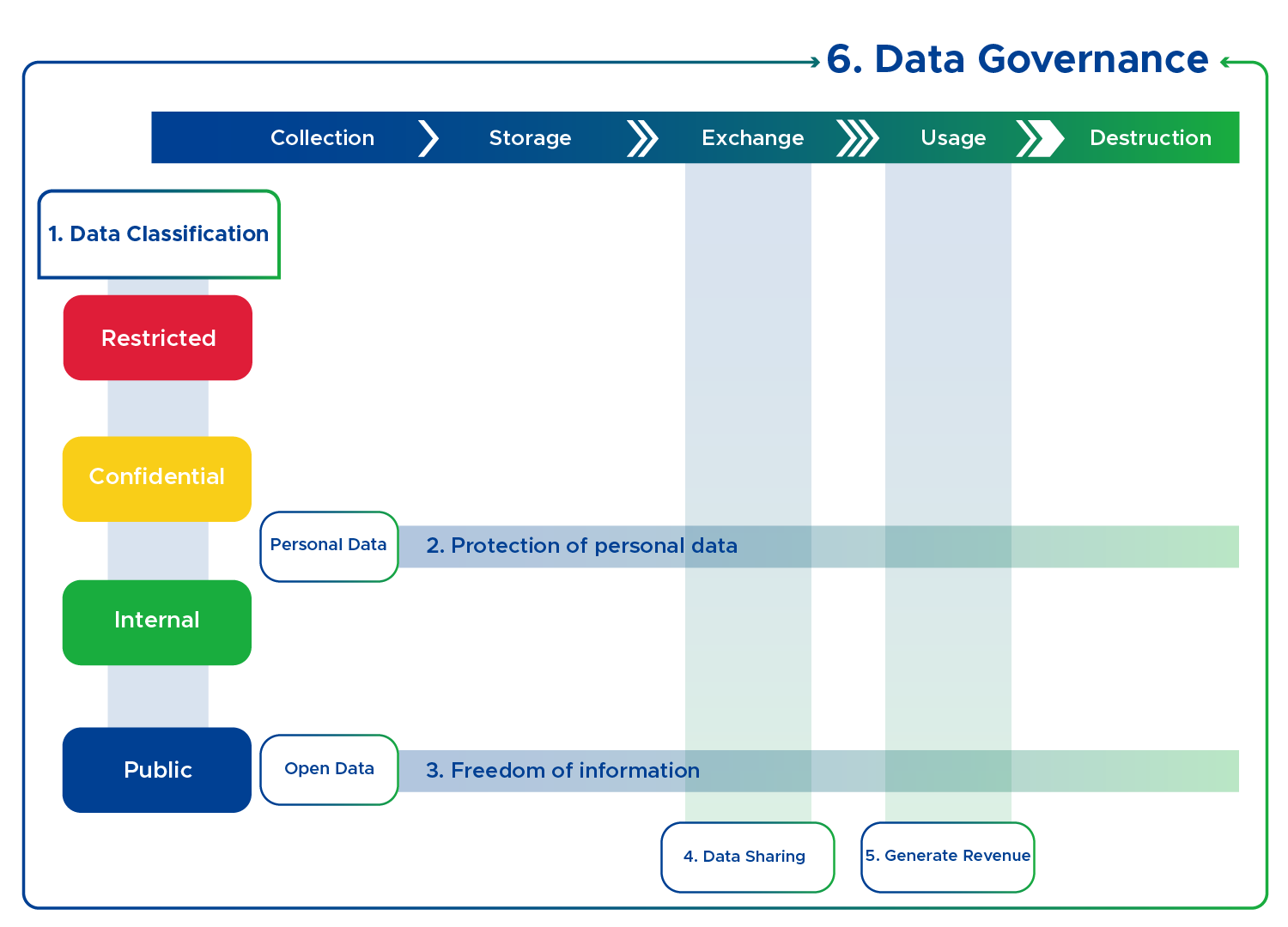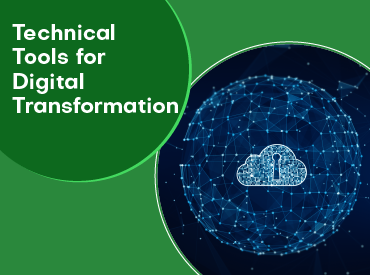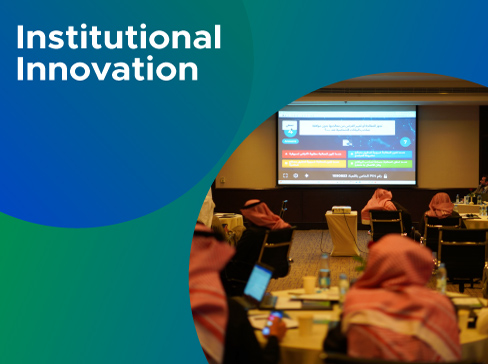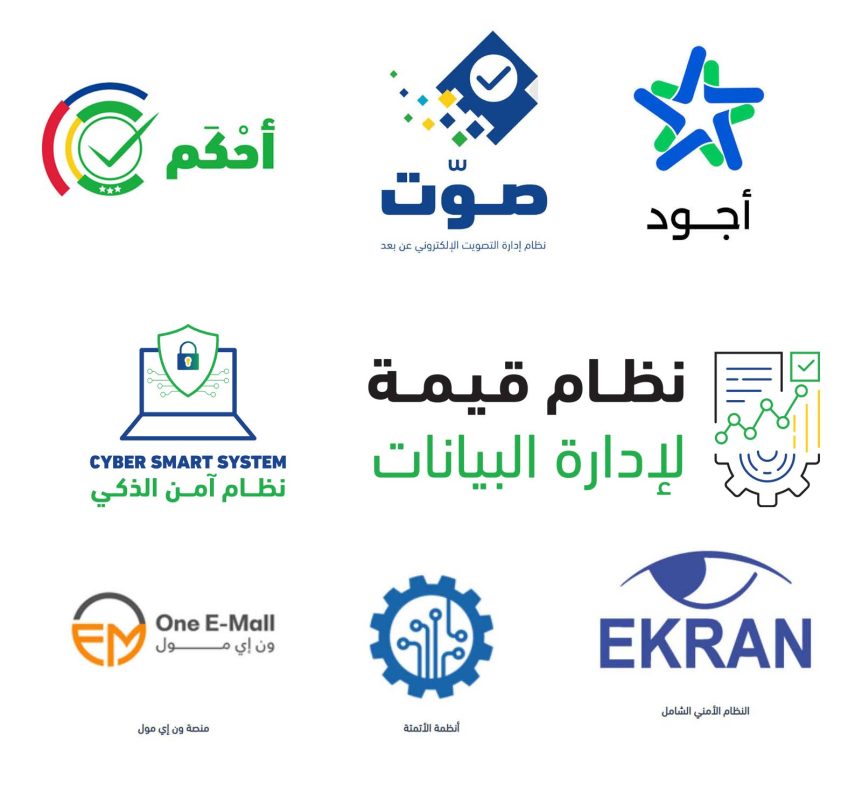Developing data management and governance policies
Establishment and Operation of Data Management Office (DMO)
Developing data management and governance policies
The data generated, received, or handled by government entities inherently represents a national asset. It can contribute to enhancing performance and productivity, facilitating the delivery of public services by supporting effective data management processes, strategic decision-making, future foresight, and achieving the highest levels of responsibility and transparency.
Countries worldwide are actively seeking to leverage the value of data as an economic resource that fosters innovation and contributes to supporting economic transformations and enhancing the competitive capabilities of nations. This is achieved through the development of data management policies and data governance policies. At the national level, government entities accumulate vast amounts of data that, when properly processed, can be utilized to contribute to economic growth and elevate the kingdom to a leadership position within data-driven economies.
The objective of developing data management and governance policies
Deliberately advancing towards an organized and integrated data environment, in alignment with the vision of Saudi Arabia 2030, the Kingdom aims for a new era that enhances the performance of government entities, increases their transparency and responsibility levels, and encourages economic diversification and utilization of data-driven services. This plays a significant role in the global economy based on trust and international partnerships.
In this context, the National Data Management Office, as the regulatory entity for national data, has developed a temporary framework for data governance at the national level. This framework outlines policies related to data classification, sharing, regulation of the collection and processing of personal data, procedures for exercising the right to access or obtain public information from government entities, open data until the issuance of regulations related to data classification, data sharing, protection of personal data, and freedom of information.

The relationship between data systems, legislation and policies
What are Data Management and Data Governance Policies?
To contribute to elevating the maturity level of the data and artificial intelligence domains, 7 specific policies related to national data governance have been launched, as follows:

1. Data Classification Policy
Protecting the confidentiality of national data and classifying it into four levels.

2. Personal Data Protection Policy
Regulating the collection, processing, sharing, and preserving of personal data while maintaining digital national sovereignty.

3. Data Sharing Policy
Promoting data sharing to achieve integration among government entities and obtain data from its sources.

4. Information Freedom Policy
Regulating the public's access to and acquisition of public information in all its forms from government entities.

5. Open Data Policy
Enabling the availability of open (unprotected) data and information to the general public.

6. Personal Data Protection Policy for Children and Those under Their Guardianship
Assisting relevant authorities in protecting children and those under their guardianship from potential risks (violence, abuse, assault, threat, harm, or exploitation) resulting from the collection and processing of their personal data through websites and digital applications.

7. General Rules for Transferring Personal Data Beyond the Geographic Boundaries of the Kingdom
Preserving digital national sovereignty over personal data and working to provide the highest levels of protection when transferring personal data beyond the geographic boundaries of the Kingdom to ensure the privacy and protection of their rights.

Need assistance/consultation?
Contact us now; our entire team (+110 consultants and experts) will work together to answer all your inquiries.
What is the scope of application of data management policies?
The provisions of these policies apply to all data received, produced, or handled by public entities, regardless of its source, form, or nature. This includes paper records, meetings, communications through various channels and applications, email messages, electronically stored data, audio or video tapes, maps, photographs, manuscripts, handwritten documents, and any other form of recorded data.
Renad Al-Majd's Services in the Field of Data Governance Policies Development and Management
At Renad Al-Majd for Information Technology and Consultancy (RMG), we recognize the paramount importance of developing and managing data governance policies and aligning relevant processes within the organization. Therefore, we offer a comprehensive service package to assist your organization in developing necessary policies and enhancing the performance of its data management offices. Our services include:
- Aligning policies with the organization to fit its operations and procedures.
- Developing new policies for all data management areas in line with controls and specifications.
- Developing policy principles and defining their scope of coverage.
- Assigning responsibilities for reviewing, approving, and disseminating policies.
- Monitoring internal and external impacts and adjusting policies based on them as needed.


Need assistance/consultation?
Contact us now; our entire team (+110 consultants and experts) will work together to answer all your inquiries.


















